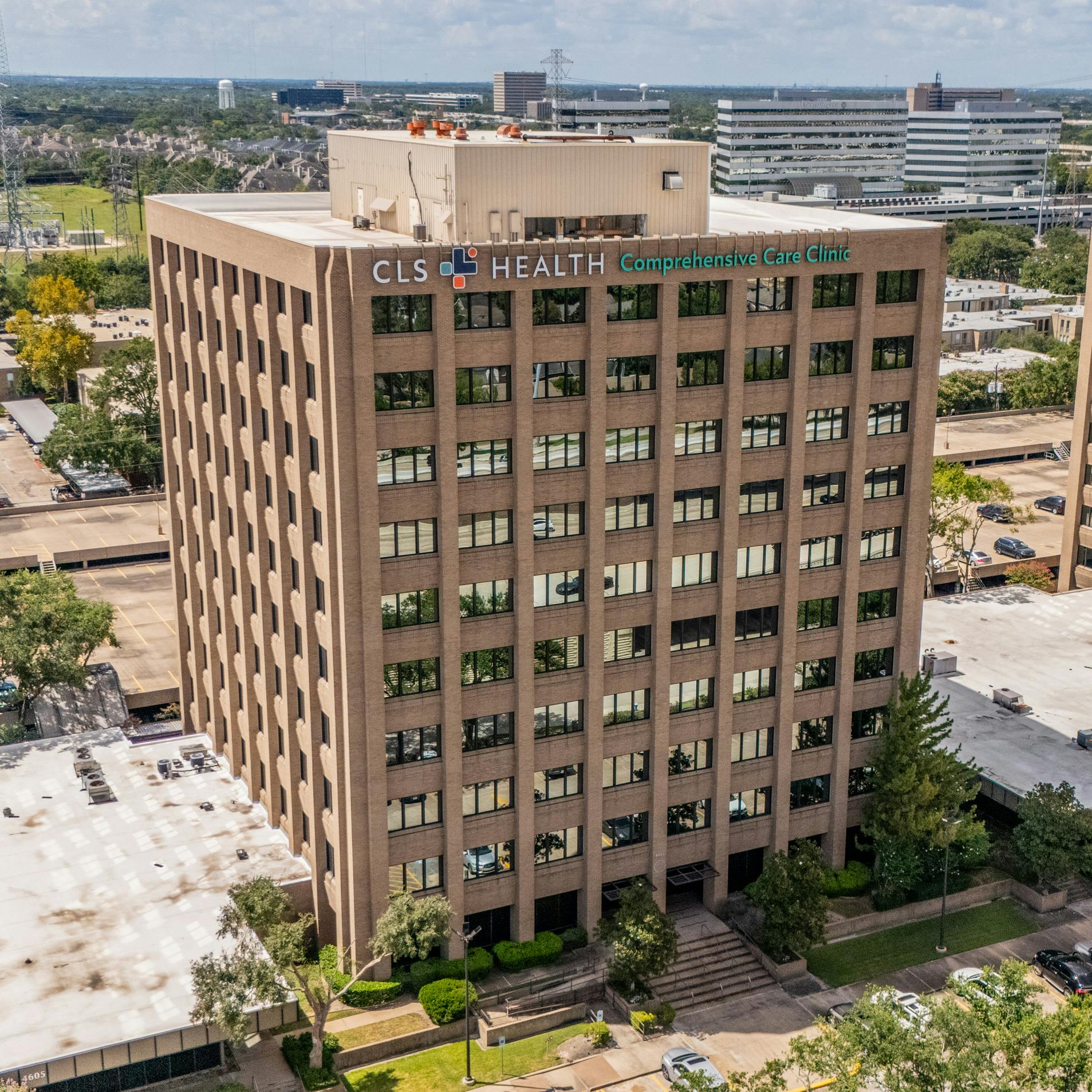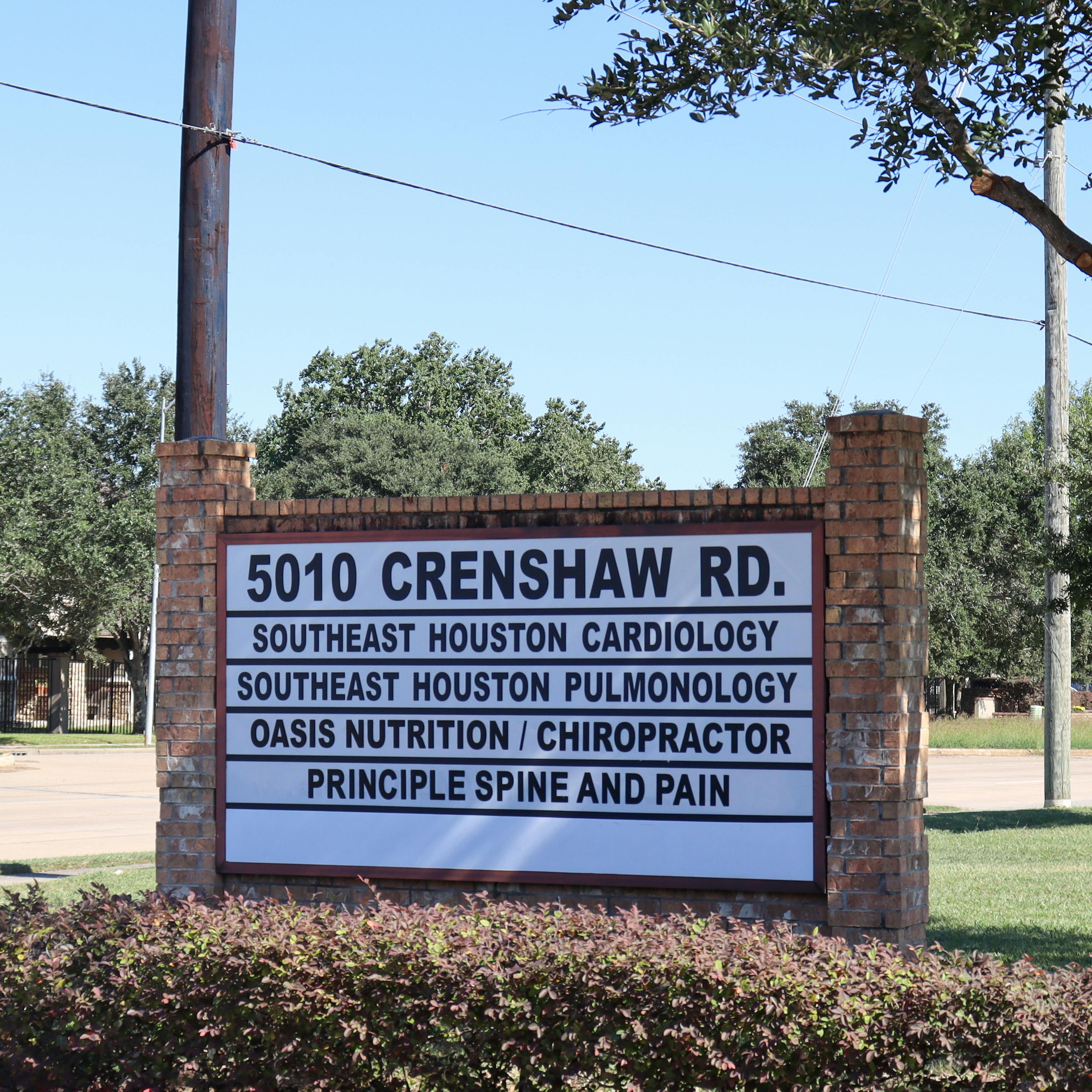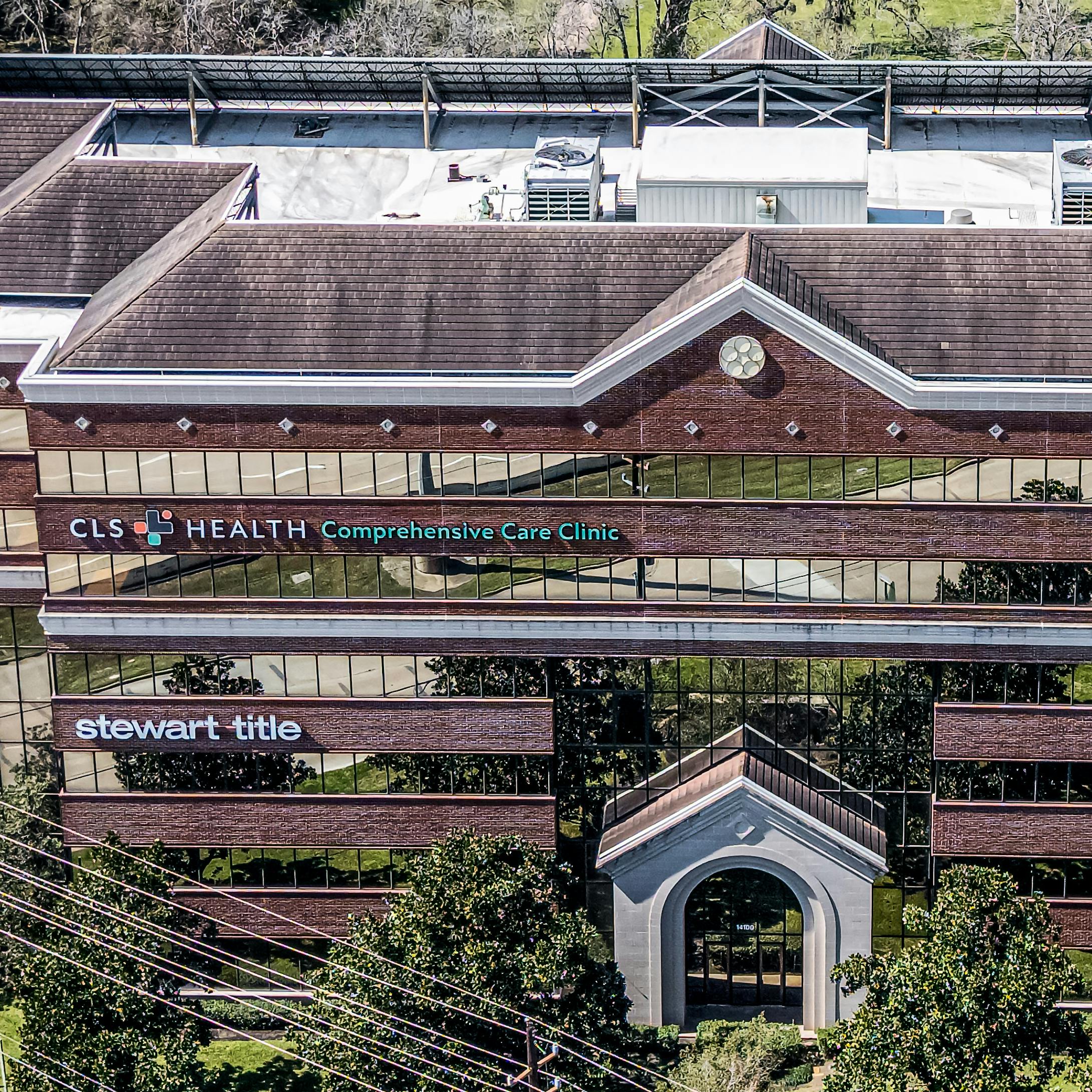Interventional Cardiology

Houston’s Interventional Cardiology Specialists
CLS Health cardiologists combine advanced expertise with a patient-first, compassionate approach to deliver complete heart and vascular care. Interventional cardiology focuses on diagnosing and treating heart and blood vessel conditions through minimally invasive procedures such as angioplasty, stenting, and catheter-based valve repair.
Our board-certified interventional cardiologists care for patients with chest pain, shortness of breath, coronary artery disease, and other complex heart conditions. Whether you need coronary stenting, TAVR, or treatment for vascular or structural heart disease, our team guides you through every step with clarity and support.
With clinics across Greater Houston, we provide comprehensive cardiovascular care—from prevention and risk-factor management (like high blood pressure and high cholesterol) to advanced interventions for coronary, vascular, and valve disease. Known for their precision, innovation, and patient-centered focus, our cardiologists are consistently rated among the top in patient satisfaction.
When should I see an Interventional Cardiologist?
Your doctor may refer you to an interventional cardiologist if you have symptoms of coronary artery disease—such as chest pain, shortness of breath, or abnormal stress test results. You may also be referred after a heart attack, when blockages are suspected, or if you need advanced treatments like angioplasty, stenting, or transcatheter valve procedures (TAVR).
Our specialists use minimally invasive, catheter-based procedures to restore blood flow, treat valve and structural heart problems, and help prevent future complications. During your consultation, we’ll review your test results, explain your treatment options, and guide you toward the safest, most effective plan for your heart health.
We welcome self-referred patients, as well as referrals from primary care physicians, cardiologists, and other specialists. Second opinions are always available for those seeking additional clarity or reassurance.
Providers

Cardiology, Interventional Cardiology

Cardiology, Interventional Cardiology

Cardiology, Interventional Cardiology

Cardiology, Interventional Cardiology

Cardiology, Interventional Cardiology

Cardiology, Interventional Cardiology

Cardiology, Interventional Cardiology

Cardiology, Interventional Cardiology
Conditions Treated
At CLS Health, our interventional cardiology team specializes in diagnosing and treating heart and vascular conditions using advanced, minimally invasive procedures. We focus on restoring healthy blood flow, preventing complications, and helping patients return to safe, active living with confidence.
We treat conditions caused by narrowed or blocked heart arteries, including coronary artery disease (CAD), angina, and heart attacks. These problems can reduce blood flow to the heart, causing chest pain, shortness of breath, or life-threatening emergencies. Our team performs procedures such as coronary angiography, angioplasty, and stent placement to quickly restore circulation, relieve symptoms, and protect long-term heart function.
Interventional cardiologists also diagnose and treat vascular disease outside the heart, including peripheral artery disease (PAD) and carotid artery disease. These conditions may cause leg pain, numbness, or increase stroke risk due to reduced blood flow. Using catheter-based treatments, we improve circulation, relieve symptoms, and lower the risk of serious vascular complications.
We evaluate and manage structural heart issues such as aortic stenosis and other valve disorders affecting the aortic or mitral valve. These conditions can cause fatigue, shortness of breath, or reduced heart function. When appropriate, we offer minimally invasive, catheter-based options such as transcatheter valve repair or replacement (TAVR and other advanced therapies) to restore healthy heart performance without the need for open surgery.
Diagnostic Testing
Our interventional cardiology team uses advanced diagnostic testing to identify heart and vascular conditions early and guide the most effective treatment plan. These tests help us evaluate blood flow, heart function, and structural concerns with precision and minimal discomfort.
We use specialized imaging to diagnose coronary artery disease and identify blockages causing chest pain, fatigue, or shortness of breath. Tests such as coronary angiography, fractional flow reserve (FFR), and intravascular ultrasound (IVUS) allow us to see inside the arteries, measure blood flow, and determine how severe any narrowing may be. These evaluations help us decide whether a stent or other treatment is needed to restore healthy circulation.
To understand how well the heart pumps and how blood moves throughout the body, we perform tests such as cardiac catheterization and stress testing. These studies measure pressures inside the heart, evaluate how it responds to exercise, and help pinpoint the cause of symptoms like chest discomfort or shortness of breath. This information guides personalized treatment decisions and long-term heart care.
For patients with valve problems, structural heart disease, or unexplained symptoms, we offer imaging studies such as echocardiography, cardiac CT, and cardiac MRI. These non-invasive tests provide detailed views of the heart’s valves, walls, and chambers, helping us identify issues like valve stenosis, weak heart muscle, or congenital abnormalities. With these insights, we can create targeted treatment plans that support better heart function and overall health.
Interventional Cardiology Procedures
Our interventional cardiologists use minimally invasive, catheter-based treatments to restore blood flow, repair structural problems, and reduce long-term health risks. These procedures are performed through small incisions, allowing for faster recovery, less discomfort, and excellent outcomes.
We treat coronary artery disease, chest pain, and heart attacks using advanced techniques that restore healthy blood flow to the heart. Coronary angioplasty and stenting open blocked arteries quickly and safely, while atherectomy removes hardened plaque to improve circulation. These procedures help relieve symptoms, prevent future cardiac events, and support long-term heart health.
For patients with heart valve disease, we offer minimally invasive alternatives to open-heart surgery. Procedures such as Transcatheter Aortic Valve Replacement (TAVR) and transcatheter mitral valve repair or replacement allow us to treat severe valve conditions with less pain and faster recovery. These approaches are ideal for patients seeking effective, lower-risk solutions for valve disorders.
We diagnose and repair structural abnormalities inside the heart using catheter-based techniques. Conditions such as Patent Foramen Ovale (PFO) and Atrial Septal Defect (ASD) can be treated without open surgery, using devices placed through a small catheter. These procedures help prevent complications, improve circulation, and restore normal heart function.
For patients who cannot take long-term blood thinners, we offer left atrial appendage closure — a minimally invasive procedure that reduces stroke risk in atrial fibrillation. By sealing the area where most clots form, this treatment provides long-term protection and peace of mind for patients requiring an alternative to medication therapy.
Our specialists also treat vascular conditions affecting arteries outside the heart, including the legs, neck, and other critical areas. Peripheral artery and carotid interventions help restore blood flow, relieve symptoms such as leg pain or dizziness, and reduce the risk of stroke or limb complications. These treatments expand access to comprehensive cardiovascular care within one team.
Why Patients Choose CLS Health
- Among the highest-volume providers of angioplasty and stenting in the region
- Leaders in Transcatheter Aortic Valve Replacement (TAVR) and procedures for valve disease
- Trusted by referring physicians across Texas for advanced cardiovascular care
- Welcoming to self-referrals and second opinions
- Active participants in clinical trials and physician training programs
- Multilingual care teams, including English and Spanish
Don't see your insurance listed? We may still accept it! CLS Health updates accepted insurance plans regularly. Please call (281) 724-1860 to verify your coverage.
- Aetna Select
- Open Access Selects
- Elect Choice
- Aetna Open Access Elect Choice
- Aetna Choice POS II
- Managed Choice
- Open Choice PPO
- Aetna Medicare Advantage Plans
CLS Health does not accept:
- Aetna CVS Marketplace Plans
* Some providers may not accept this insurance, please call to confirm
- Superior Ambetter Core (Complete, Clear, Focused, Standard Silver and Gold)
- Superior Ambetter Value (Clear Value Silver, Focused Value Silver, CMS Standard Silver & Gold Value, Everyday Value Gold)
- Superior Ambetter Virtual (Ambetter Virtual Access Silver, CMS Standard Virtual Access Basic Silver, Ambetter Virtual Access Gold)
- Superior Health Plan CHIP*
- Superior Health Plan MAPD (Medicare Advantage Prescription Drug)
- Superior Health Plan Medicare
- Superior Health Plan MMP Medicaid*
- Superior Health Plan MMP Medicare
- Superior Health Plan STAR*
- Superior Health Plan STAR Kids*
- Superior Health Plan STAR+PLUS*
CLS Health participates in most Blue Cross Blue Shield plans including:
- Blue Choice PPO
- Blue Essentials
- Blue Essentials Access
- HealthSelect
- HealthSelect of Texas In Area
- Consumer Directed HealthSelect in Area
- HealthSelect of Texas Out of State
- Consumer Directed Health Select Out of State
- HealthSelect Secondary 65+
- Medicare Advantage HMO
- Medicare Advantage PPO
- Medicare Advantage Value HMO
- POS
- Traditional/Par Plan
- TRS-Active Care
- TRS-Care Standard
- BCBS MyBlue Health (Marketplace)
*Some providers may not accept Community Health Choice, please call to confirm
- MarketplacePremier
- Medicaid*CHIPCHIP PerinateSTAR
- Medicare AdvantageDual-Special Needs Plan (D-SNP)
- ChoiceCare PPO
- EPO
- HMO
- HMO Premier
- Medicare Advantage Plans
- HumanaChoice - Medicare Advantage PPO plan
- Humana Gold Choice - Medicare Advantage Private Fee-for-Service (PFFS) plan
- Human Gold Plus - Medicare Advantage HMO & Special Needs Plan
- Military (TRICARE South Region Military Health Plan)
- POS - including Choice POS, National POS Open Access/Plus and Preferred POS Open Access.
- PPO
*Some providers may not accept United Healthcare, please call to confirm
- Commercial, HMO, POS, EPO and PPO Plans (Charter, Choice,Core, Doctors Plan, Freedon, Heritage, Navigate, Nexus ACO, Options PPO, Passport Connect, Select)
- Indemnity
- Medicare Advantage (AARP, Care Improvement Plus, C-SNP, D-SNP, I-SNP, Erickson Advantage, ERS Medicare Advantage, TRS-Care Medicare Advantage, UnitedHealthcare Chronic Complete, UnitedHealthcare Connected (Medicare-Medicaid Plan), UnitedHealthcare Dual Complete, UnitedHealthcare Group Medicare Advantage PPO, United Healthcare Medicare Complete)
- Community Plans* (CHIP, CHIP Perinate, Star, Star Kids, Star Plus, MMP)
- Wellmed (Wellmed Dual SNP Focus, Wellmed Medicare Advantage Focus)
*Some providers may not accept Wellpoint, please call to confirm
- Medicaid (All Texas Plans Including the Below)*
- CHIP
- CHIP Perinate
- STAR
- STAR+PLUS
- STAR Kids
- Medicare Advantage
- C-SNP
- D-SNP
- I-SNP
- Medicare Advantage HMO
- Medicare-Medicaid (MMP)
- Medicare-Medicaid Program (MMP)
- STAR+PLUS MMP
*Some providers may not accept insurance, please call to confirm
PPO Networks
- Beechstreet PPO
- Carnival Cruise Lines PPO
- Envolve Benefit Options Vision-PPO, HMO
- First Health
- Curative/First Health
- Galaxy Health Network
- HealthSmart Preferred Care
- Accel
- Healthsmart Payors Organization
- Multiplan PPO
- Tricare (Humana) PPO/Prime
Employer-Specific Plans
- Brazoria County Employees – Aetna TPA Brazoria County Employees
Workers’ Compensation Plans
- Workers’ Comp
- Auto & Workers’ Comp
Medicare and Medicare Advantage
- Medicare Traditional
- Medicare Advantage
- Memorial Hermann Health Solutions Commercial and Medicare
- Molina Medicare Complete Care HMO SNP
- Medicare-Medicaid Program (MMP)
- STAR+PLUS MMP
- Alignment Health Plan
- AllyAlign Health
- American Health Plans
- Florida Complete Care
- Gold Kidney Health Plan
- Imperial Health
- Independent Health
- Kaiser Foundation Health Plan of Washington
- Kaiser Foundation Health Plan of Colorado
- Mass Advantage
- Presbyterian Health Plan
- PriorityHealth
- Provider Partners
- SCAN
- UCare
- Vantage Health Plan
- Verda Healthcare
- Zing Health
Medicaid and CHIP Programs
- Molina Healthcare* (Marketplace, Medicaid, CHIP, CHIP Perinate, STAR, STAR Kids, STAR+PLUS)
- Texas Children's Health Plans*
- TMHP (Traditional Medicaid) Traditional Medicaid
Specialty Plans
- VA Community Cares Network CCN
FAQs
An interventional cardiologist specializes in diagnosing and treating heart and vascular conditions using minimally invasive procedures. These may include angioplasty, placing stents, repairing heart valves, or treating blocked arteries without the need for open-heart surgery.
A general cardiologist focuses on prevention, diagnosis, and medical management of heart disease. An interventional cardiologist has additional training to perform catheter-based procedures like stent placement or valve repair to restore blood flow and improve heart function.
Common procedures include coronary angioplasty, stent placement, valve repair or replacement (such as TAVR), closure of structural heart defects, and treatment of peripheral artery disease.
No, interventional cardiology is not traditional open-heart surgery. These procedures are performed through small catheters inserted into blood vessels, making them less invasive, with shorter recovery times and fewer risks compared to surgery.
CLS Health accepts Medicare, Medicaid, and most major health insurance plans. Schedule an appointment with our experienced cardiologists to receive comprehensive heart care covered by your insurance.




